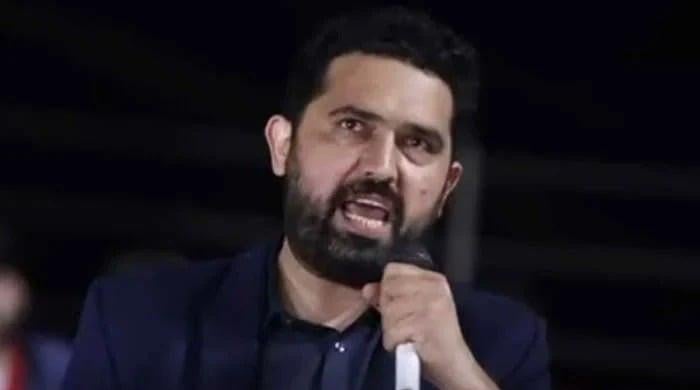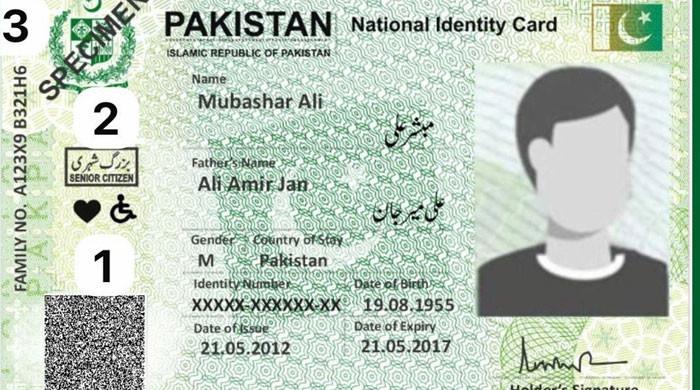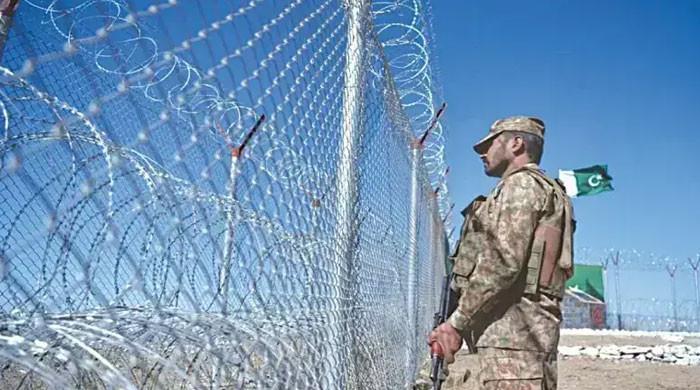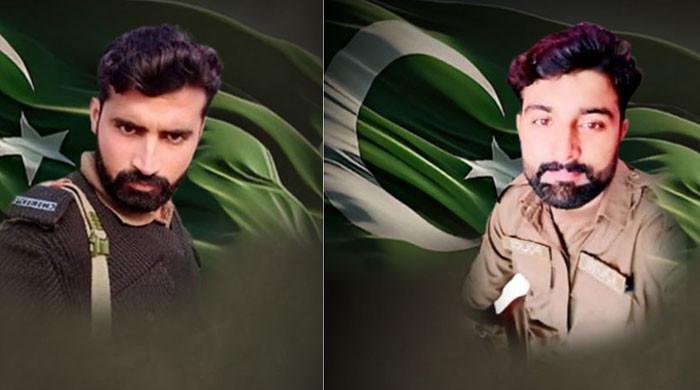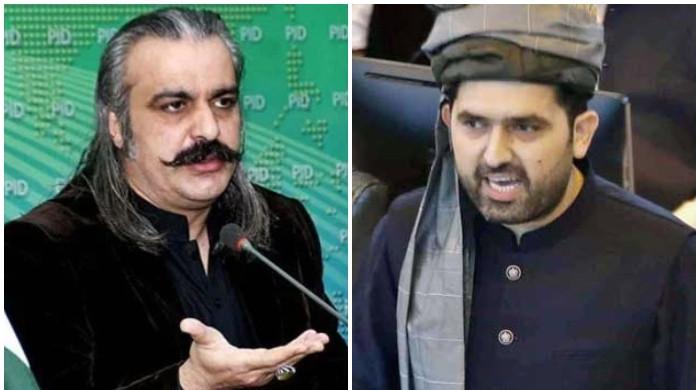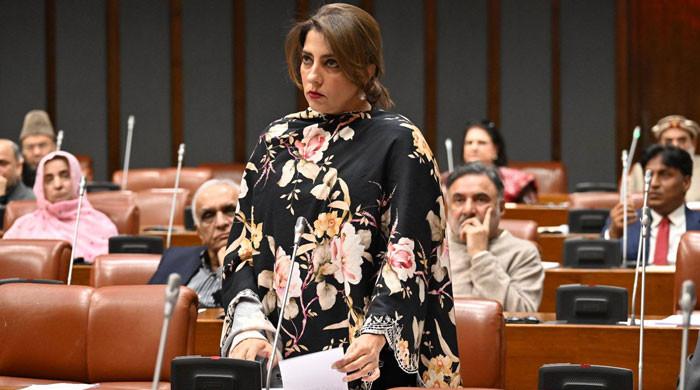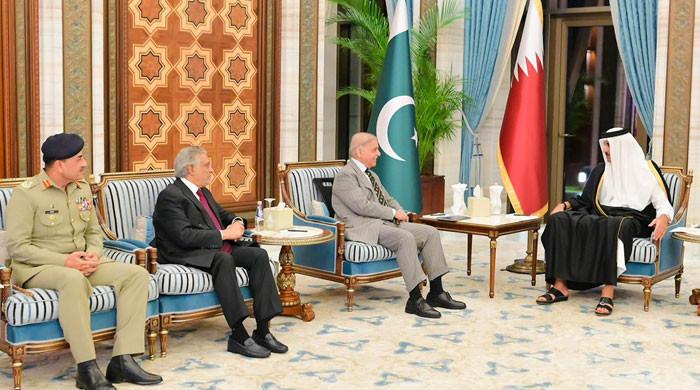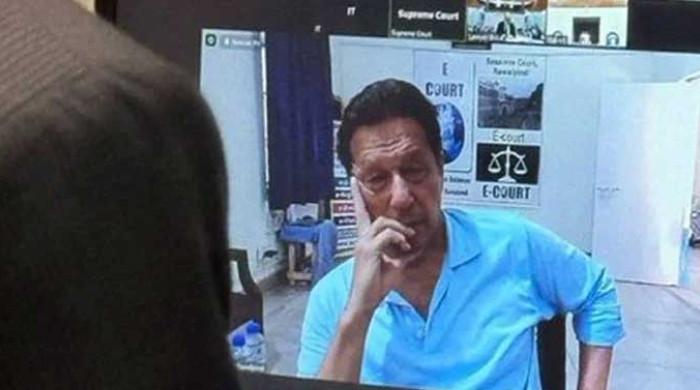I am neither Taliban's spokesperson nor their lawyer: FM Qureshi
"Pakistan has always tried to persuade the Taliban to negotiate," he says
June 21, 2021
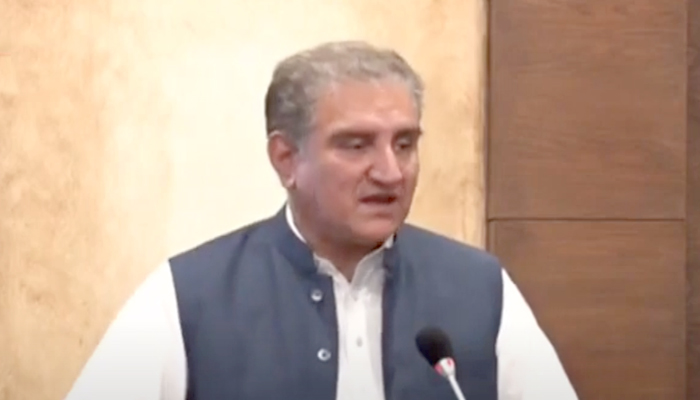
- "Pakistan has always tried to persuade the Taliban to negotiate," says FM Qureshi.
- Afghan NSA's statement did not benefit his country, he says.
- FM Qureshi terms India's all-party meet as "extraordinary."
Foreign Minister Shah Mahmood Qureshi spoke on the Afghan Peace Process, saying that neither is he the Taliban's spokesperson nor the group's lawyer.
"I am only Pakistan's foreign minister," FM Qureshi said, addressing a news conference in Islamabad.
The foreign minister said he had responded as a Pakistani to the Afghan national security advisor's recent anti-Pakistan response.
"The Afghan NSA's statement did not benefit his country," the foreign minister said, adding: "Pakistan has always tried to persuade the Taliban to negotiate."
Last week, talking to TRT World during his visit to Antalya, Turkey, the foreign minister had said that one "cannot pass the buck to Pakistan" for peace and stability in Afghanistan.
The foreign minister had said that Pakistan had been engaged constructively for peace and stability in Afghanistan and would continue to do so.
“But this is a shared responsibility. You cannot pass the buck towards Pakistan.
"Pakistan is one regional player. There are other global players and there are other interests that are paramount in the region,” the foreign minister said.
FM Qureshi lashes out at Afghan NSA
On June 5, Foreign Minister Shah Mehmood Qureshi had lashed out at the Afghan NSA for his comments against Pakistan and called on him to "reflect and correct" his behaviour.
Responding to media queries on June 19, the Foreign Office spokesperson had strongly condemned the "baseless insinuations" by the Afghan NSA and noted that Pakistan’s role in the Afghan peace process has been widely acknowledged by the international community.
India's all-party conference
Meanwhile, the foreign minister termed India's June 24 all-party conference as "unusual" adding that the Kashmiri leadership in India had rejected Prime Minister Narendra Modi's proposal.
"The meeting is a hidden indicator that points out how everything is not all right [in India]," he stressed.
Kashmiri politicians will urge Modi to restore Jammu and Kashmir's autonomy when they meet him on Thursday.
The Kashmiri leadership meets the Indian premier for the first time since the government scrapped Article 370 of the Indian constitution, taking away occupied Kashmir's special status two years ago, party officials said.
New Delhi has struggled for decades to dampen secessionist sentiments in what had been its only Muslim-majority state.
Reasserting New Delhi's control in August 2019, Modi abolished Article 370 of the Constitution, ending the region's autonomy and removing its statehood by splitting it into the federal territories of Jammu and Kashmir (J&K) and Buddhist-dominated Ladakh.
Some of the politicians set to meet Modi on Thursday were among the thousands of people detained back then to forestall a backlash against the shock move. The government also imposed months-long communications restrictions in the highly sensitive Kashmir valley to stifle opposition.
"Our agenda is the restoration of pre-August 5, 2019 status of Jammu and Kashmir," People's Democratic Party (PDP) leader Mehbooba Mufti told her colleagues on Sunday, according to two officials who attended the online meeting.
Senior leaders of the National Conference also met over the weekend and backed a decision to push for the restoration of statehood and special status, a party official said.
The 2019 decision to withdraw occupied Kashmir's autonomy drew a sharp reaction from Pakistan, leading to the downgrading of diplomatic ties and suspension of trade.
— Additional input from Reuters




